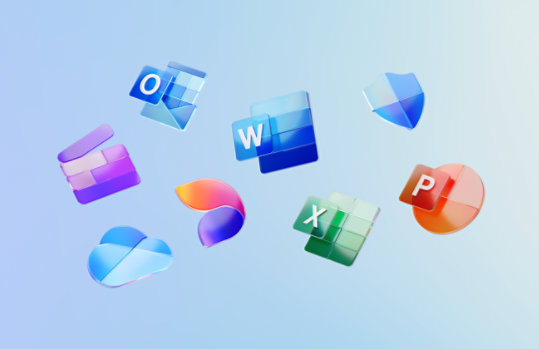AI Arms Race Intensifies: OpenAI's Bold Move into Productivity Software Challenges Tech Giants
As the company builds document collaboration tools, Microsoft partnership faces new strain
OpenAI is quietly developing productivity features for ChatGPT that would directly challenge the dominance of Microsoft Office and Google Workspace, according to the Information. The AI pioneer's ambitious expansion beyond its conversational roots signals a new front in the battle for control of how businesses create, share, and manage information.
"From Chatbot to Command Center": OpenAI's Workplace Vision Unfolds
The San Francisco-based company is building collaborative document editing capabilities and integrated communication tools that mirror core functions of Microsoft's and Google's flagship productivity suites. This expansion aligns with CEO Sam Altman's repeatedly stated vision of transforming ChatGPT from a standalone assistant into a comprehensive "lifelong personal assistant" that seamlessly integrates into professional workflows.
OpenAI's productivity push includes several interconnected initiatives now in various stages of development:
- Real-time collaborative document editing comparable to Google Docs and Microsoft Word online
- Communication tools embedded directly within documents
- Meeting transcription and summarization features that convert conversations into actionable items
- Connectors to popular business applications including Gmail, Outlook, and Dropbox
- An experimental advanced "Canvas" feature for more efficient document and code generation
Beyond these core productivity functions, the company appears to be constructing a broader ecosystem that includes an AI-powered browser, hardware devices developed in partnership with former Apple design chief Jony Ive, and even a social content feed within ChatGPT itself.
Corporate Chess Match: Microsoft Partnership Faces Uncertain Future
This expansion comes at a particularly delicate moment in OpenAI's relationship with Microsoft, which holds approximately 49% of OpenAI's for-profit unit and has invested billions in the company. The two firms are currently negotiating a restructuring of OpenAI's commercial operations, with tensions reportedly mounting over technology access and profit-sharing arrangements.
Microsoft has aggressively integrated OpenAI's technology into its own Copilot suite of productivity tools, making the startup's pivot into standalone productivity software potentially problematic for the partnership. Sources familiar with the negotiations suggest OpenAI is seeking greater independence from Microsoft's computing resources and more control over its technology, while Microsoft aims to protect its privileged access to OpenAI's innovations.
"This is the inherent tension in their relationship," notes a veteran Silicon Valley analyst who requested anonymity. "Microsoft provided the computing infrastructure that made OpenAI's breakthroughs possible, but now OpenAI appears to be developing products that could eventually compete with Microsoft's core business."
The AI-Native Advantage: Rethinking Productivity from First Principles
What distinguishes OpenAI's approach is that it's building productivity tools with artificial intelligence as the foundation rather than retrofitting AI capabilities into existing software. This "AI-native" approach could potentially offer several advantages:
- Contextual intelligence that draws on organizational data to provide proactive suggestions
- Unified workflows that seamlessly blend text, voice, and visual inputs
- Automated task management for scheduling, summarizing, and report generation
- Cross-platform flexibility that integrates with a wide range of business tools
The company's rapid innovation cycle also gives it unique advantages. While Microsoft and Google must maintain backward compatibility with decades of legacy features, OpenAI can build modern experiences unencumbered by technical debt.
"The Enterprise Software Earthquake": Market Impact and Investment Implications
For businesses already using ChatGPT as a standalone tool, these integrated productivity applications could transform the platform from an occasional assistant into a central component of daily workflows. This shift could prompt enterprises to reconsider their software subscription bundles that have traditionally favored Microsoft and Google.
"We're potentially looking at the most significant disruption to enterprise productivity software since cloud computing," suggests a technology investment strategist at a major Wall Street firm. "Companies that have built their digital infrastructure around Microsoft's ecosystem may soon have compelling alternatives."
However, significant barriers remain. Enterprise adoption of AI-powered productivity tools has been hampered by concerns about accuracy, data privacy, and the difficulty of integrating these new tools with existing systems. Some analysts point out that OpenAI's offerings still have gaps in traditional office tasks like complex spreadsheet operations and presentation design.
From an investment perspective, this development carries several important implications:
- Microsoft's Office revenue stream, which accounts for approximately 23% of its total revenue, could face increasing competitive pressure
- Google's Workspace business, already challenged by Microsoft, now faces a potential two-front battle
- Enterprise software companies that have built businesses around integrating with Microsoft or Google may find new opportunities—or threats—in OpenAI's ecosystem
- Hardware manufacturers could see demand for more powerful devices capable of running advanced AI applications locally
The Long Game: Beyond Productivity to Platform Dominance
OpenAI's ambitions likely extend far beyond simply competing with Microsoft Office or Google Workspace. The breadth of its initiatives—from document collaboration to social feeds to hardware—suggests the company is positioning itself as a comprehensive platform that could eventually serve as the primary interface through which people interact with information and services.
With the anticipated release of GPT-5 later in 2025, which will reportedly unify text, voice, and visual inputs, OpenAI appears to be laying the groundwork for an ecosystem that could eventually challenge not just productivity suites but potentially operating systems themselves.
While no official launch dates have been announced for OpenAI's productivity suite, the rapid development and rollout of new features indicate that significant announcements may be imminent. For businesses and investors alike, the message is clear: the AI revolution is moving beyond specialized applications into the mainstream tools that power daily work.
As one industry observer noted, "We're witnessing the beginning of a fundamental restructuring of the software industry. The companies that have dominated enterprise technology for decades suddenly look vulnerable in ways that would have been unimaginable just a few years ago."
[Disclaimer: This analysis is based on current market information and historical patterns. Past performance does not guarantee future results. Readers should consult financial advisors for personalized investment guidance.]

